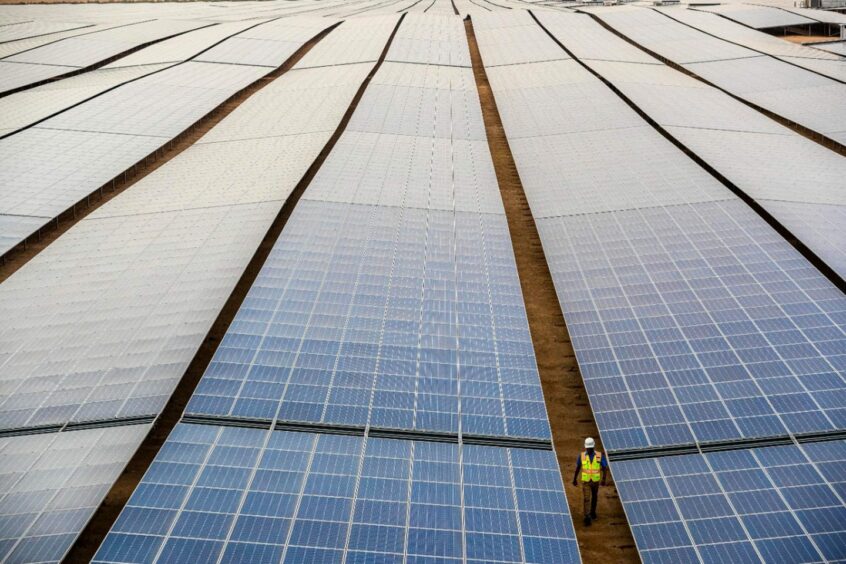
The global energy landscape is undergoing profound changes amid volatile and complex market situations, price instability, and the growing need to rapidly adapt if we are to meet net zero targets. The global energy industry has never experienced anything like this before, and never has collaboration been more important.
At the heart of this challenge, we are all facing an Energy Trilemma – finding the balance between security, affordability and sustainability. This is not something that will be easy to do.
Fossil fuels including oil, coal, and natural gas still supply about 80% of the world’s energy. This is a figure that needs to decline if government targets to reduce reliance on fossil fuels are to be met. But it will also require a transition that ensures a continuous and secure supply of energy, as the ongoing situation in Europe demonstrates.
Demand rising
Just as Dr. Sultan bin Ahmed Al Jaber, United Arab Emirates’ special envoy for climate change, quite rightly pointed out, we cannot just flip a switch and unplug from the current energy system and simply decommission oil rigs.
With global energy demand predicted to increase 47% over the next 30 years, due to population and economic growth – especially in developing countries – oil and natural gas production will have to increase to meet those needs until alternatives energy sources are sufficient to meet this requirement.
That need to provide energy accessibility for developing markets is especially critical. While access to electricity in sub-Saharan Africa is slowly growing, the region’s population is expected to double to over 2 billion by 2050.
Moving away from hydrocarbons before viable alternatives can meet those growing energy needs will significantly weaken energy security, erode economic stability and reduce the income available that we all need to invest in the framework required for an energy transition.
For the UAE, oil and gas exports remain an intrinsic part of the economy, making up 30% of national GDP, and this provides the capital to invest in clean energy projects.
The UAE is playing a leading role and has already invested $40 billion in domestic clean energy projects, as well as contributions to renewable energy projects in 70 other countries.
And through different initiatives, it further aims to invest a total of $163.35 billion in different projects to achieve 50% clean energy by 2050.
Not only is the UAE targeting net zero emissions by mid-century at home, but we are also working as part of an international community that’s constantly exploring innovative and collaborative ways to make clean energy more accessible, especially for climate-vulnerable communities.
The energy industry is not shirking its responsibilities. It is increasingly working towards making transition work, with global investment into net-zero focused deals growing, showing a 35% increase between 2020 to 2021.
Taking time
Balancing the Energy Trilemma is possible, but it will take time, and will certainly require international co-operation between every facet of the industry. This is a pathway that every nation is looking to travel sensibly, and it will form the underlying basis of nearly every discussion at COP27, especially with those countries whose economy relies heavily on energy.
That’s why events like ADIPEC are vital. ADIPEC 2022, which takes place in Abu Dhabi at the end of October, will bring together more global elements of the energy industry than any other gathering. It’s a crucial event that not only facilitates discussions around the future of the industry but also shapes, accelerates and influences change.
Strategically taking place pre-COP27, it’s a global platform for leaders to reinforce their commitments that will drive the industry towards reducing emissions and meeting decarbonisation goals, while also providing a realistic view on short- and long-term energy outlooks.
Sustainability must be pragmatic and practical, and energy sources – including natural gas – will have a big role to play. Balancing the Energy Trilemma is possible, but it will take time, and will certainly require co-operation and shared innovation between every part of the energy industry.
Recommended for you

 © Supplied by Adnoc
© Supplied by Adnoc